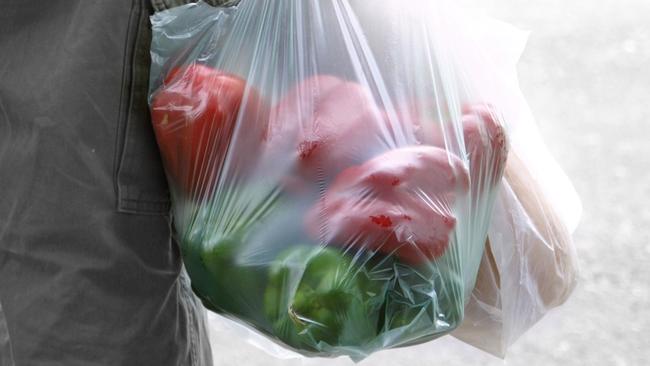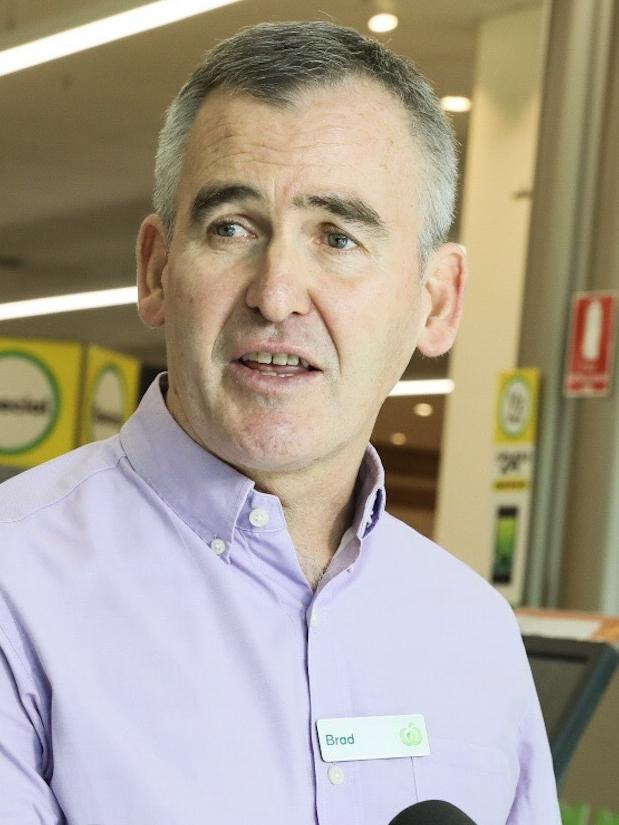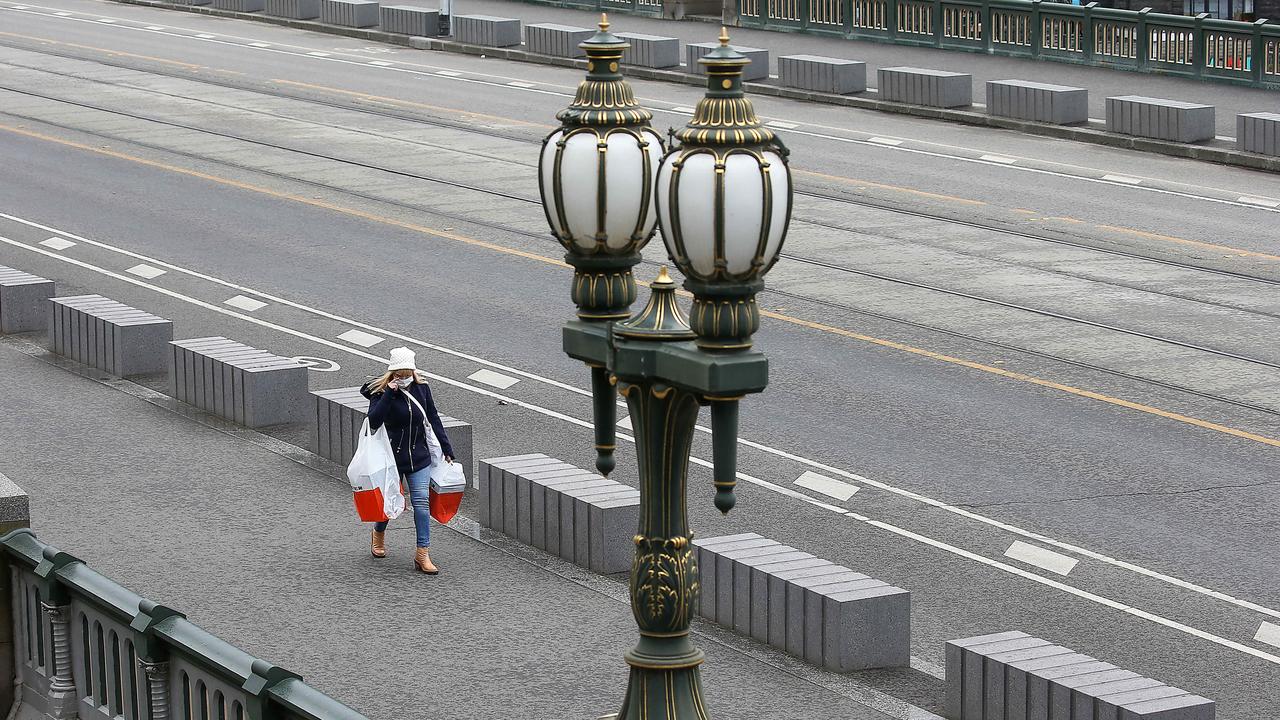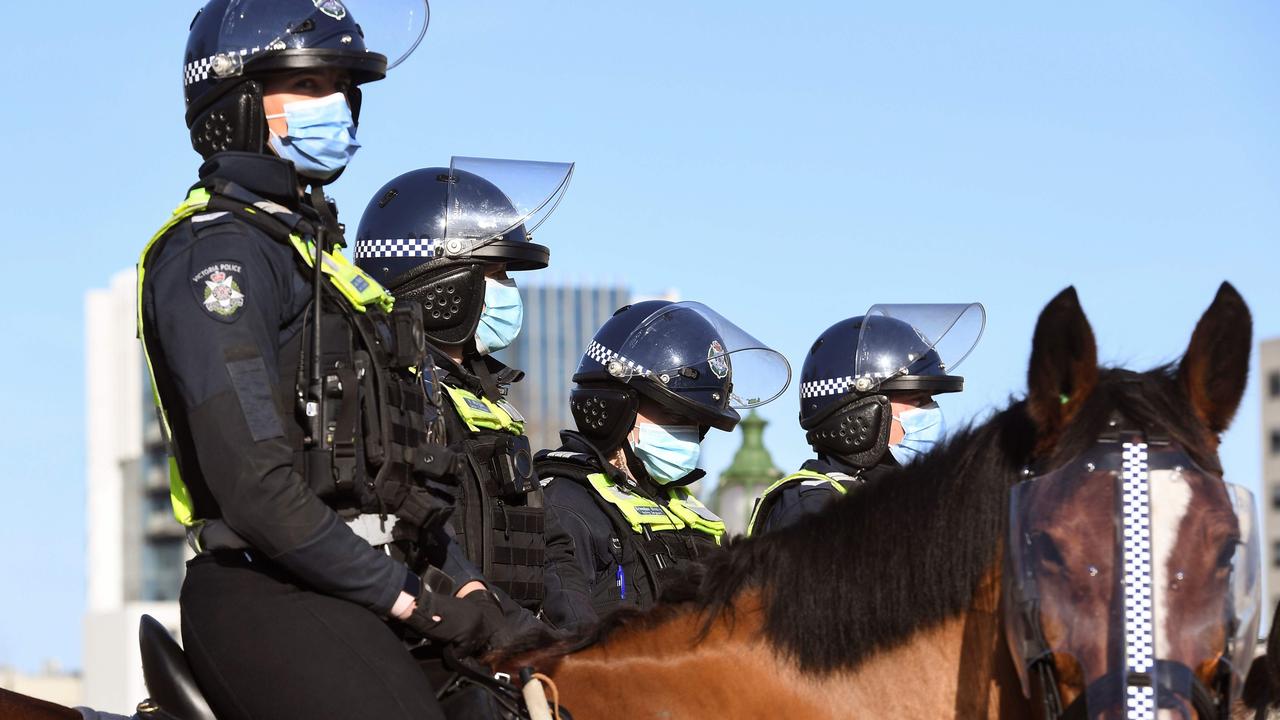Andrew Bolt: Free plastic bag ban at supermarkets a green gimmick
HOW convenient for Woolworths and Coles to announce a free plastic bags ban on the same day. Convenient for them, but an absolute pain in the neck for shoppers, writes Andrew Bolt.

Andrew Bolt
Don't miss out on the headlines from Andrew Bolt. Followed categories will be added to My News.
HOW strangely convenient for Woolworths and Coles to both announce on Friday they would ban the free plastic bags for your shopping.
That way, they didn’t risk having their ticked-off customers switch to their competitor.
Convenient for them, but an absolute pain in the neck for shoppers, who must now bring their own bags or buy them at the checkout for 15c.
Woolworths Group CEO Brad Banducci claimed on Friday that customers has asked for this ban on free plastic bags: “We’ve been looking at the feedback we get back from our customers.”
Really? Then why do these same customers take more than 3.2 billion of these bags at Woolworths checkouts a year?
No wonder they do. These bags are so obviously handy — first to take home the shopping and then to wrap food, line bins, bag scraps or even pick up dog droppings.
WOOLWORTHS AND COLES TO AXE FREE PLASTIC BAGS

Seems the supermarkets are listening to the activists, not their customers. And shame on you for suspecting this is just about saving money. Hush! Woolies and Coles are doing it for the planet. Think of all those plastic bags now littering roads and killing animals.
“We think it’s an incredibly important thing to do,” Banducci says.
But so many claims by green groups of plastic bags choking even whales have proved wildly exaggerated. Moreover, a Productivity Commission study estimated just 0.8 per cent of these single-use bags become litter, and those going to landfill have “stabilising qualities”, helping with “leachate minimisation and minimising greenhouse gas emissions”. The study even warned that banning them could be worse for the environment.
In 2008, the UK Environment Agency found the single-use bags were actually the most environmentally friendly sort to make, particularly if people used them more than once. For a start, making and transporting these flimsy bags produces less carbon dioxide, waste and other byproducts than does making paper bags or the re-usable and recycled plastic tote bags you’ll now be encouraged to buy.
You’d have to use a paper bag seven times before it was as environmentally efficient, or use a tote bag 26 times.
And when South Australia banned plastic bags in supermarkets, people bought five times more bin liners, made from a plastic that takes longer to decompose.
That’s the gesture politics of the green movement all over again: maximum inconvenience for minimum gain.



